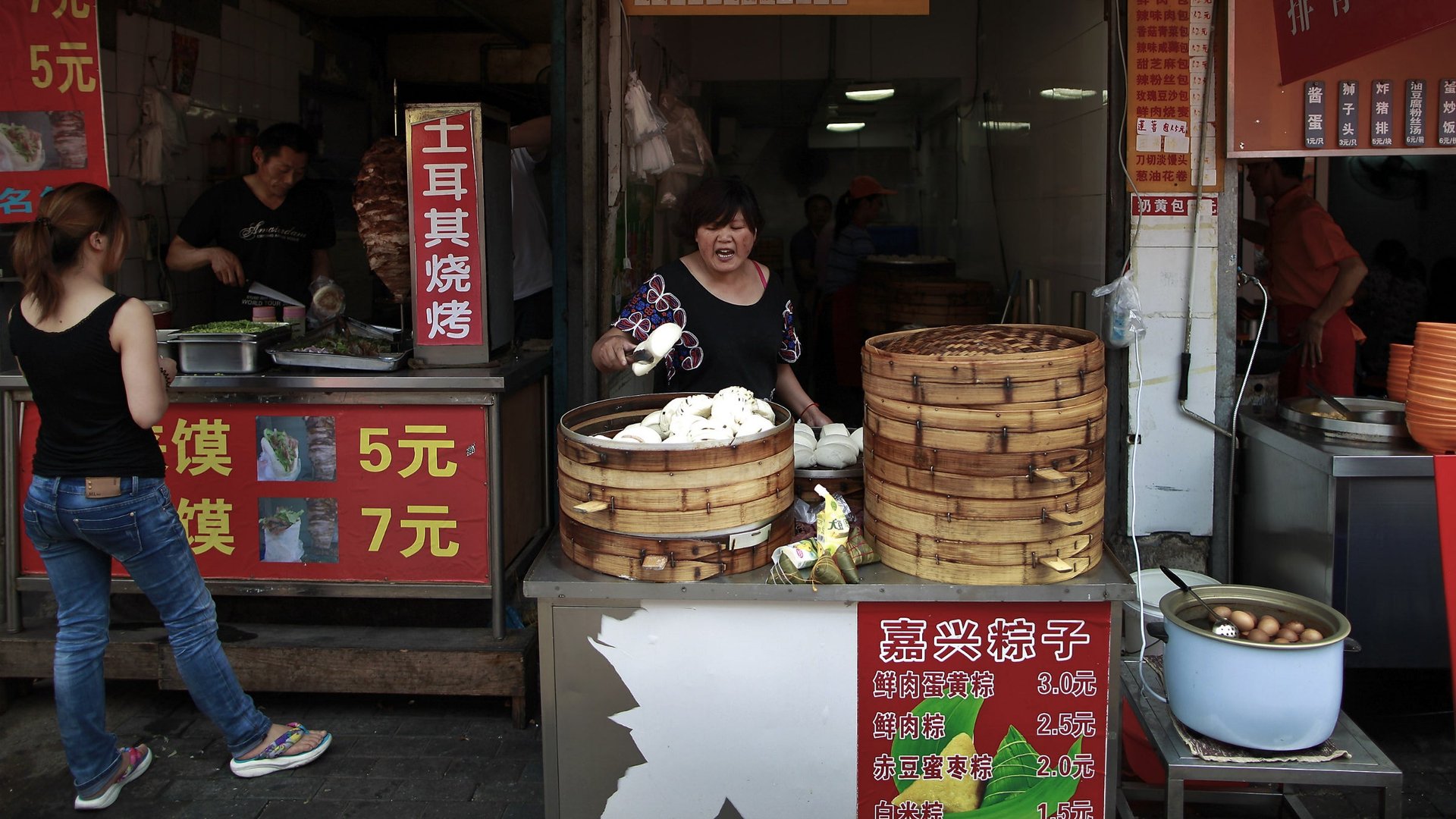The scandals that show how hard China must work to improve food safety
Chinese lawmakers want to overhaul the country’s labyrinthine food safety bureaucracy to improve terrible food standards, replacing a large group of overlapping regulators with an entity similar to the Food and Drug Administration of the United States.


Chinese lawmakers want to overhaul the country’s labyrinthine food safety bureaucracy to improve terrible food standards, replacing a large group of overlapping regulators with an entity similar to the Food and Drug Administration of the United States.
Food scares are such an issue in China that even government-controlled news agency Xinhua has highlighted Chinese peoples’ dissatisfaction with the dangers lurking in their dinner bowls. And earlier this year, the Chinese government announced plans to rewards of up to $48,000 to whistleblowers who uncover food law violations.
Slack labeling, scary additions of toxic chemicals to food and dangerous food forgery are such ingrained practices that people who can afford imported food often refuse to eat local. For instance, Quartz has reported how some Chinese consumers are rejecting Ikea meatballs—and not because the Swedish chain’s food may be tainted by the European horsemeat scandal. Shoppers who bought the meatballs thinking they were imported were scandalized when Ikea revealed they were made in China.
But whatever bureaucratic structure China’s new leaders go for, Beijing has a huge job on its hands fighting food contamination, which cause both deep paranoia and, among those who don’t have to eat the food, extreme mirth. Here is a round-up of food scares the long-suffering Chinese have had to put up with:
Yogurt “produced” on February 30: Chinese netizens (link in Chinese) recently spotted yogurt sold by Chinese dairy giant Mengniu Dairy labeled with an impossible production date of “February 30m 2012.” This raises understandable concerns about shoddy date labeling in general.
Poisoned baby milk: The Hong Kong government, exasperated by mainland Chinese parents clearing the territory’s supermarket shelves of foreign baby formula following a huge health scandal about Chinese milk in 2008, has now forbidden people from crossing its border into China with more than two cases of the milk powder.
Fake eggs: Egg forgery has been common since at least the 1990s, as dishonest traders concoct cheaply-produced artificial eggs to sell a a big profit. Last November, a Chinese newspaper discovered a batch of fake eggs that were cooked up with paraffin wax and gypsum powder and were selling at markets at bargain prices.
Exploding watermelons: In 2011, eastern Chinese farmers keen to grow a bumper crop applied a dangerous growth accelerator to watermelons. The result, as The Guardian reported here, was fields of melons exploding “like landmines.” The scandal exposed overworked Chinese farmers’ dependence on chemical fertilizers.
Insecticide in breakfast buns. The mantou, a doughy steamed bun, is a breakfast and snack staple across China. In 2009, Chinese and Taiwanese media reported (link in Chinese) claims by a mantou trader in China’s Shaanxi province that some manufacturers were lacing the buns with a poisonous insecticide that also increased the product’s “umami,”the elusive “fifth taste” valued highly in Asian cooking.
Cadmium-laced rice: Chinese media regularly report discoveries of rice contaminated with dangerous levels of the heavy metal cadmium. Here is a report on the topic from late February. And here is a Wall Street Journal summary of others from February 2011. The WSJ said cadmium is associated with: “high blood pressure, fluid accumulation in the lungs and a potentially fatal softening of the bones.” The toxic metal likely gets into soil when factories dump industrial waste into rivers.